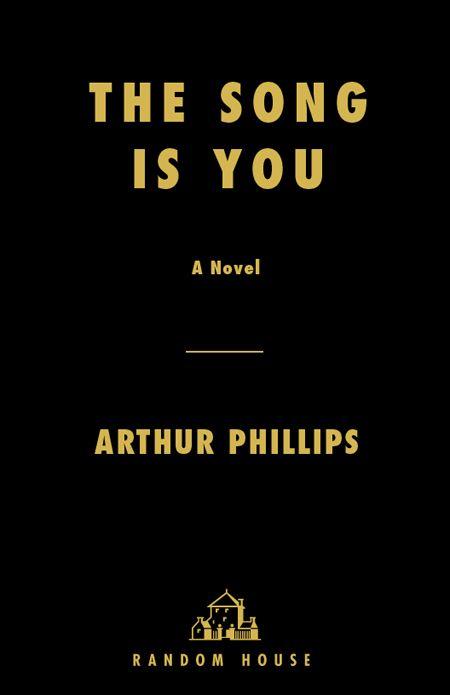
The Song Is You
A Novel
کتاب های مرتبط
- اطلاعات
- نقد و بررسی
- دیدگاه کاربران
نقد و بررسی

Starred review from December 1, 2008
A television commercial director strikes up a bizarre relationship with the object of his infatuation in Phillips's enthralling fourth novel. Behind his hipness and attitude, Julian Donahue is going through an emotional crisis that started when his two-year-old son died of a freak infection. His wife, Rachel, reacted by vigorously cheating on him; Julian, meanwhile, went impotent. But his potency returns one night in his Brooklyn apartment as he listens to a CD by rising Irish singer-starlet Cait O'Dwyer. As his interest in her music and career grows into a full-blown obsession, Julian meets washed-up rocker-turned-painter Alec Stamford (who harbors a few of his own bizarre yearnings), and Julian is propelled to do more than mill around in the back of crowds at Cait's performances. Phillips is in top form and does a brilliant job of transcribing the barrage of Julian's sensory data into cool and flexible prose. This is a triumphant return for Phillips to the level he achieved in his wonderful debut, Prague
.

March 1, 2009
A betrayed husband's fascination with a charismatic singer is given several intriguing twists in this subtle fourth novel from the versatile Phillips (Angelica, 2007, etc.).
As he did in his widely praised debut novel Prague, Phillips focuses microscopic attention on the intellectual keenness and emotional vulnerability of each of his straying, struggling principal characters. Foremost are reluctantly aging director of TV commercials Julian Donahue, still sunk in grieving over his two-year-old son's death from a mysterious infection; Julian's estranged wife Rachel, whose own sorrows have steered her into promiscuity; and rising musical star Cait O'Dwyer, a bewitching Irish beauty who has become the darling of dimly lit jazz clubs and college campuses, and whose smoky sensuality brings back to Julian the vocal witchcraft practiced by Billie Holiday in her heyday. The simplicity of the tensions thus created is then skillfully complicated, as Phillips juxtaposes Julian's convoluted self-justifying fixation ("He could believe, with Cait in his life, that he could be free and tethered, young and old, joyful and mourning, forgiven") with a trenchant objective analysis of both his conflicted youth (among a loving and judgmental family) and his destroyed marriage. Whenever we expect it to suffocate in solipsism, this novel's scope instead widens. Intriguing parts are played by the footloose members of Cait's touring band, a sinister rock star turned painter (Alec Stamford) and Julian's older brother Aidan, an autodidact underachiever whose many failures are crowned by his embarrassing appearance on Jeopardy (from which, as it happens, author Phillips retired as an undefeated champion). The problem is Cait, whose ostensibly irresistible allure is never fully convincing; no more so, in fact, than is her reputation as a soulful songwriter—who, for example, rhymes"keep your distance…[with] don't leave a witness."
Still, the novel's clashing harmonies seduce and fascinate. And Phillips still looks like the best American novelist to have emerged during the present decade.
(COPYRIGHT (2009) KIRKUS REVIEWS/NIELSEN BUSINESS MEDIA, INC. ALL RIGHTS RESERVED.)

March 1, 2009
Jazz-reared Julian Donahue might love Music more than he loves Peopleand understandably so. People, like his dead infant son and ex-wife, tap deep and tangled emotions. Music, on the other hand, can be selected, the bad filtered out to build an ideal realm. It is in one of these worlds where our middle-aged ad man chances upon a performance by beautiful Irish twenty-something Cait O'Dwyer, a talented post-rock singer on the rise in New York's club circuit. What happens next is thankfully far from predictable: Julian does not have steamy, soul-redeeming sex with this younger womanin fact, they never meet, instead carrying on an intellectual affair via the Internet and especially the iPod. In his fourth novel, Phillips attempts an antinovel wherein we are to be carried away by Music's power to disconnect us from and connect us to our most honest selves. This comes, unfortunately, at the expense of story and dramatic tension. Although Phillips writes with the precision and silkiness of Truman Capote, all we are left with is an Idea that begs to be animated somehow. Music nerds who also happen to read fiction will be his most sympathetic audience, yet the author's many fans will also be curious about this noble experiment. For larger fiction collections.Heather McCormack, Library Journal
Copyright 2009 Library Journal, LLC Used with permission.

March 15, 2009
Phillips, author of the best-selling Prague (2002), hits a pitch-perfect note in this heartbreakingly lyrical novel of love, loss, and the almost mystical power of music to stir the soul and redeem the wounded spirit. Anyone who has ever enjoyed a visceral connection to music will appreciate the pivotal role it plays in Julian Donahues life. His iPod, the greatest of all human inventions, harbors both a lifeline to the past and the tantalizing promise of the future. When his young son dies, and Julians marriage begins to unravel, it is music that provides both solace and escape. When he hears an unknown Irish singer in a Brooklyn bar, he quickly becomes obsessed with Cait ODwyer, and the two, though they have never met, commence a strangely symbioticyet ultimately doomedcyber-relationship fueled by contemporary technology. Phillips both the tenor of our times and the fragility of contemporary connections.(Reprinted with permission of Booklist, copyright 2009, American Library Association.)

























دیدگاه کاربران